Announcing the February 2016 Educator Spotlight honorees! Congratulations to our educators.
The Educator Spotlight is a monthly feature on our Catapult Corner Blog. The educators that are highlighted are nominated by their colleagues in recognition of the positive impact they have on children and schools throughout the country. They are our very own shining stars!
- Andrew Cruse – Teacher – Cincinnati, OH
- Janet Huff – Teacher – Cincinnati, OH
- Anthony Tolonen – Teacher – Cincinnati, OH
- LeeAnn Darnell – Teacher – Chicago, IL
- Matthew Healey – Teacher – New London, CT
- Son Kirst – Teacher – Joint Base Lewis-McChord (JBLM), WA
- Sabrina Ponder – Teacher – Detroit, MI
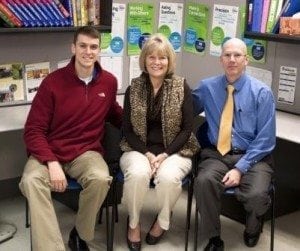
Moeller High School’s Catapult Learning team: Andy Cruse, Janet Huff, and Anthony Tolonen
Andrew Cruse – Teacher
“Andrew has really stepped into his role at Moeller. . . . He is an excellent role model to the young men there with his positive attitude, his knowledge of the content and his professionalism.” —Sue Ann Marie Korb, Ohio Instructional Supervisor, Catapult Learning
- Cincinnati, Ohio
- Special Education, Miami University, Ohio
Why did you become a teacher?
I enjoy special education. I grew up very close with my cousin who has downs syndrome. In college I eventually made the decision to pursue special education and haven’t looked back. It is a very rewarding career so far, and I really enjoy seeing the students grow and have success.
What do you love most about teaching for Catapult Learning?
I enjoy the support and guidance we receive from Catapult.
What is your greatest teaching success story?
I do not have one single story but the daily interaction with the students in my classroom and around the building has been spectacular. Each day and class is another exciting opportunity for me to help students work towards reaching their potential, not only as students but as people too.
What have you learned from your students?
The students are smarter than I think. They really keep me on my toes and I am amazed at how much knowledge the students have about school subjects and what is going on in America.
Janet Huff – Teacher
“It is a joy to watch Janet teach a lesson. Her lessons are well planned, paced, and supports [her students’] needs. Janet knows her students and reviews daily what they should be working on and what tests they are preparing for. She makes sure she provides them with all the support to be successful learners.” —Sue Ann Marie Korb, Ohio Instructional Supervisor, Catapult Learning
- Cincinnati, Ohio
- B.S. in Elementary Education, Ohio State University; M.S in Special Education, Xavier University
Why did you become a teacher?
I became a teacher to enable young people to reach their potential.
What do you love most about teaching for Catapult Learning?
I enjoy the opportunity to work in a private school as an Intervention Specialist.
What is your greatest teaching success story?
I do not have a single success story. I work with ninth grade young men who are entering high school from many different feeder schools. I enjoy watching the transformation of the young men who enter in the fall as tentative, shy young men who do not know a lot of their peers. By spring, they develop into more independent, organized, outgoing, motivated young men who are aware of the strengths they possess.
What have you learned from your students?
I have learned that praise and kindness are the best motivators.
Anthony Tolonen – Teacher
“Anthony joined the Moeller staff last year. He has gone above and beyond to help the students at Moeller understand how they learn. . . .He is very organized and focuses on helping his students use the study skills strategies he teaches them so they become better more successful students.” —Sue Ann Marie Korb, Ohio Instructional Supervisor, Catapult Learning
- Cincinnati, Ohio
- M.A. Special Education; M.A. Archaeology
Why did you become a teacher?
I became a teacher because I believe that if our republic is to be just and secure, then we must each be educated well enough to fulfill our roles as members of an informed body politic—thinking, reasoning, and reflecting with discernment. I believe that each of us is a citizen leader, and I am eager and proud to participate in the apprenticeship of a new generation of American leaders.
What do you love most about teaching for Catapult Learning?
At Catapult I have:
- A supervisor that will visit my class frequently and observe my instruction. I believe that from these observations, I receive robust feedback that identifies what I did well in my class AND identifies areas where I need to develop;
- A support system that provides substantive, clear strategies/suggestions I can implement to achieve needed development and which reflect high standards for student achievement;
- Opportunities to work collaboratively with colleagues and community stakeholders to create a positive and supportive learning environment;
- An administration that I can rely upon to make decisions based on the best interests of the students, my host school’s mission, and the needs and welfare of the school’s parents and community;
- And teams-based school approach that works cooperatively to design instruction, and which articulates an instructional vision emphasizing respect and collaboration.
- I was raised in Cincinnati and graduated from my host school. I enjoy the community and the people I have met here. Being able to return and resume my life in Cincinnati has been a joy.
What is your greatest teaching success story?
Because of my licensing, I have worked with a wide range of grade levels. One of my younger students threw terrible tantrums when he was given classwork he didn’t want to do. This was particularly true for reading lessons, because this student was not reading at grade level and did not believe in himself as a reader. Because he needed a scribe but did not have an aide, it became my responsibility to deliver instruction while scribing for him. Unfortunately, he would become upset if an adult sat within a few feet of him or tried to talk with him.
I spent my first months slowly soliciting his social interaction, a little bit at a time, for very short intervals. I spoke to him and interacted with him as I did with his classmates, but in an abbreviated manner. I looked carefully for any cues that he gave regarding his acceptance or rejection of my interactions with him. I never let him refuse instruction or my scribing for him—even if it meant that I did the work sitting at the next table over from him. I was very animated in praising his work, particularly when that work involved his interacting with me positively.
At first he might simply look at me, or maybe stare but not cry. Later, he would accept my siting at the same table. He began looking at me while I talked to him or asked him a question. I started to get fist bumps from him. Then he started to answer questions by pointing to his books or worksheets. After some time, he started to verbally respond to questions. Initially, these responses were simple one or two word answers. But they developed into entire sentences, which in turn became conversations. By midyear, this student was standing up to deliver brief oral presentations. He started coming to class smiling, making jokes, and coming to my desk eagerly asking to know what we would be doing in class. He revealed a love of math; a wry sense of humor; a fondness for sports; and very strong opinions regarding reading material.
This student continued to struggle with oral communication and continued to experience difficulties accepting the presence of strangers. His verbal communications were typically short, and softly spoken, and lacked affectations. However, he went from being wholly withdrawn and non-participative to being everyone’s best friend. And importantly, he became an eager participant in most lesson activities showing enthusiasm and humor. This student’s growth into a self-proclaimed reader is my greatest teaching success, and represents the kind of outcome I want all of my students to realize.
What have you learned from your students?
I have learned that contemporary classrooms are heterogeneous by nature: no student or teacher experiences the instructional setting exactly as does another. I have learned that regardless of how classroom membership is constructed, I will always work back and forth between providing individualized instruction that emphasizes the learning strengths and styles of individuals, and attending to group strategies that emphasize student learning similarities. In other words, I have learned to capitalize on students’ shared learning strengths and compensate for individual needs. I have found that my students and I now have much more collaborative (even collegiate-like) interactions.
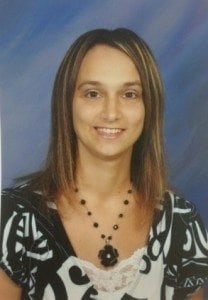
“LeeAnn is aware of company and school needs and works hard to meet them. She has been a good example for newly hired teachers to come and observe our program in action. LeeAnn excels at organization and her lessons and program materials reflect her attention to detail.” Laura Roule, Supervisor, Catapult Learning
- Chicago, Illinois
- Elementary Education
Why did you become a teacher?
I became a teacher because I enjoy working with children. Children are so creative and energetic. They keep me young, on my toes, and they make me laugh every day!
What do you love most about teaching for Catapult Learning?
I love many things about teaching for Catapult Learning. One, I enjoy the small class sizes. I feel that I can better reach students in a small group setting. It makes me feel proud to be able to make a difference in my student’s lives and academic successes. Second, Catapult Learning allows me to share my love of reading and doing math with my students on a daily basis. I enjoy passing on my passion for reading and math to all my students.
What is your greatest teaching success story?
One of my greatest success stories occurred a few years ago when I was working at a school on the South side of Chicago. I had worked with a male student for two years, helping him with reading comprehension. After graduating he came back the next year to thank me for all my help. It was very rewarding to hear from a former student.
What have you learned from your students?
I have learned many things from my students. I have learned that all students can learn, but they all learn in a different way. I have also learned that I too am a student – I learn something new every day. Finally, I have learned patience!
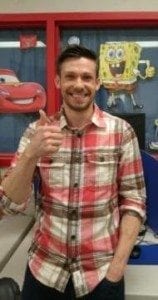
“Matt’s passion for teaching is evident in the long hours he works to achieve individualized academic programming for all. . . . He is thrilled to see his students succeed and praises them for any small milestones they reach. He is one of a kind, and we are lucky to have him as a part of our team!” —Samantha Palmer, Director, High Road School of New London – Primary
- New London, Connecticut
- Special Education and Physical Education
Why did you become a teacher?
As a child, I was not the most studious pupil. In fact, I often wanted to crawl out of my skin when asked to sit for extended periods of time. As a child, I often felt that teachers wrote me off because of my lack of focus. It was not until middle school that a teacher actually took the time to ask me what my interests were. This teacher worked hard to incorporate my interests into my learning. As a result, I was much more engaged and my grades improved. The extra time this teacher took to figure out what makes me “tick” was inspiring to me. The inspiration my middle school teacher provided followed me to college where I decided I wanted to become a teacher. I started my teaching journey as a Physical Education major. After student teaching, I had difficulty finding a Physical Education teacher position due to a lack of openings in my area. A friend suggested that I check out the school he worked for since they were hiring at the TA position. Six months past and I was hooked. I completely fell in love with teaching students with emotional and behavioral disabilities in the classroom setting. I enjoyed the challenge of figuring out each students’ learning style while uncovering their interests. Helping a student properly channel their aggression and excess energy quickly became my specialty. I started thinking back to what worked (and didn’t work) for me when I was a student. By the end of my first year at High Road School, it was settled; I started grad school to pursue a masters in Special Education.
What do you love most about teaching for Catapult Learning?
I enjoy the low student-to-teacher ratio. Having only ten students in my classroom allows me to develop meaningful relationships with each of my students. I truly appreciate the mission and dedication to individualized education. Resources, such a Star Learning, allow me to track student progress and customize each child’s lesson plan. Being a kid at heart, I definitely enjoy spirited discussions with my students about our mutual love for everything Lego!
What is your greatest teaching success story?
My greatest success stories are the breakthroughs that I have had with a number of my students. Nothing beats the feeling of converting a student from a non-reader to a reader. It has also been rewarding to be a part of a process that has given students the necessary skills to return to public school.
What have you learned from your students?
By working with a population with emotional and behavioral disabilities, I have learned so much. I’ve become aware that the manner in which I outwardly present my mood greatly impacts my students’ mood and behavior. My students tend to be very sensitive to even the smallest shifts in my energy level. This serves as a reminder of how important it is to put my best face forward each day.
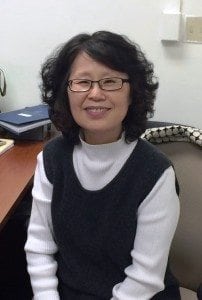
“Mrs. Kirst has always been one of our most effective instructors and curriculum developers throughout her whole employment at the JBLM Regional Language & Culture Center. She never turns down an assignment, no matter how challenging it might be, and always manages to produce excellent outcomes.” —Daniel Foster, Regional Manager, Milburn Academy, Regional language and Cultural Center
- JBLM, Washington
- M.S. Education, Lesley University
Why did you become a teacher?
I started teaching when I was in high school, and have been teaching ever since. I always enjoyed bringing new ideas and learning to others. In Korea, the method of teaching was not clear and concise so students had difficulty understanding what the teachers were teaching. I wanted to, and did, simplify the lessons taught so that the students could understand what was being taught. I successfully created a student centered classroom environment that greatly added to the value of the educational experience.
What do you love most about teaching?
What I love most about this teaching experience is that in this military environment the requirements are always changing and the courses always need to be changed and improved so I am always challenged to create newer and better classes. The classes I teach I must custom tailor to the students and that keeps my constantly involved and interested in the teaching experience.
What is your greatest teaching success story?
In the military setting that I teach in, the courses are relatively short, usually two or four weeks. I consider every class I have a success story. Because of the military system, the students are tested against a widely used common standard so they and I know how effective the teaching has been. Within the limited time I have with them, I work hard to ensure that every student in each class is successful, both in his or her understanding of the language and in the understanding of the culture of Korea.
What have you learned from your students?
The students I teach are adults with a wide variety of personal histories and experiences, so in every class as I teach my culture, I also learn about the cultures and environments that are both those of the students and those that the students have observed. Adult teaching is a rich environment for sharing and expressing different ideas and different observations, and in this environment we are able to learn from each other in an open minded atmosphere.
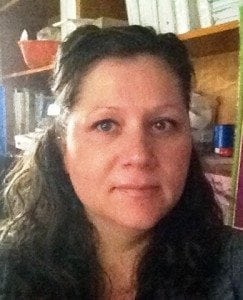
“Every time I enter Ms. Ponder’s classroom, students are engaged and energized. They want to be there and to learn. She has a way about her that makes her students want to do better. By her actions and words, her students and colleagues know she cares about them and that she will help with whatever they need.” —Ellen McGahey, Area Manager, Catapult Learning
- Detroit, Michigan
- Early Childhood Special Education, Social Studies & Science
Why did you become a teacher?
I became a teacher because I am motivated by sharing the gift of knowledge. I enjoy the safe and positive environment within the school setting, and wanted to learn all the traits of a successful educator to help me be the best parent I can be.
What do you love most about teaching for Catapult Learning?
I love my coworkers, the networking and professional experiences the job provides, and the flexibility to both work and rear my family.
What is your greatest teaching success story?
One of my former kindergarten students did not receive a permission slip at the beginning of the school year. Later in the week we ran into each other and she asked me why she didn’t receive a slip from me like the other students. I explained to her that she was doing so well that she didn’t need the extra help this year. She looked up at me and said” you taught me too good last year and know I don’t need to come to your room anymore, but I love you Mrs. Ponder and I will help the other students like you helped me.” This is my goal for every child.
What have you learned from your students?
I have learned the following from my students:
- to individualize curriculum
- motivating activities are the key to success
- positive comments can make a world of difference
